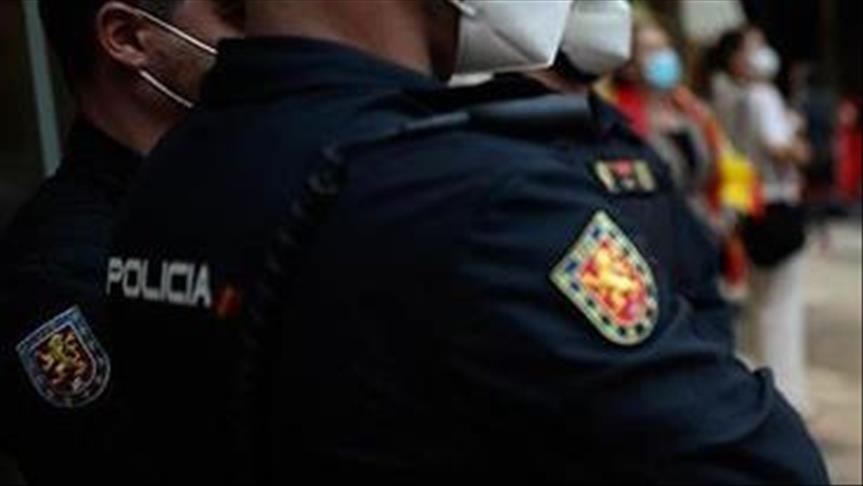
OVIEDO, Spain
Police stormed the University of Lleida in Catalonia, Spain on Tuesday, arresting rapper Pablo Hasel who had been barricaded with a group of supporters after being sentenced to prison over tweets and song lyrics.
The rapper, whose real name is Pablo Rivadulla, had until last Friday to voluntarily surrender.
But he refused to turn himself in to draw attention to what he, organizations such as Amnesty International and even members of the Spanish government, called the “injustices” of his sentence.
Rivadulla was charged with glorifying terrorism, and insulting the monarchy and state institutions.
Some of the tweets that landed him a nine-month prison sentence included calling former Spanish King Juan Carlos (currently exiled in Abu Dhabi amid corruption allegations) a thief and mafia boss, and accusing Spanish police of torture and impunity.
While protests are planned in Lleida and Barcelona in his support, more than 200 Spanish artists including film director Pedro Almodovar and actor Javier Bardem have signed a petition backing him and calling on the government to change Spain’s speech laws.
Commentators pointed out the irony of Spain’s free speech laws after around 300 people attended a Neo-Nazi rally in Madrid over the weekend.
There, one of the speakers was recorded saying: “The enemy will always be the same, although with different masks: the Jew… The Jew is the culprit.” Several people have called for an investigation, but police have not said publicly if they are looking into the incident.
Rivadulla joins a growing list of people to have landed similar charges over politically-charged tweets or artistic expression.
The European Court of Human Rights has ruled against Spain on three occasions for its law making it illegal to insult the monarchy. According to the court, it is contrary to freedom of expression, which is enshrined in Article 10 of the European Convention on Human Rights.
Last week, members of Spain’s left-wing coalition government said they will review laws around “crimes of expression.”
Anadolu Agency website contains only a portion of the news stories offered to subscribers in the AA News Broadcasting System (HAS), and in summarized form. Please contact us for subscription options.







